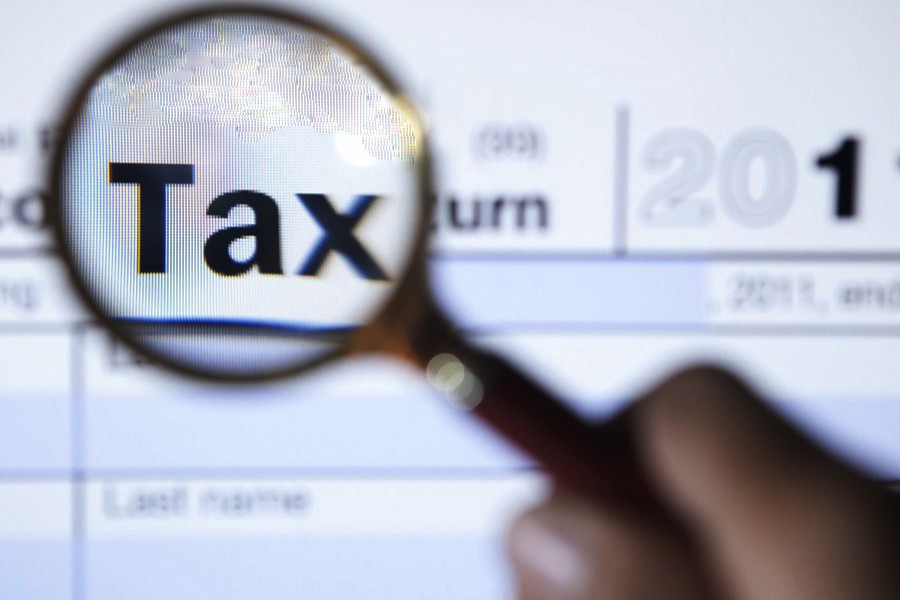Chairman of the National Board of Revenue (NBR) has said that people who are paying tax at source will be brought under the net in the next financial year.
The majority of such taxpayers go traceless and they have not come under formal tax net, said Md Mosharraf Hossain Bhuiyan Tuesday.
Under the existing income tax ordinance, the submission of tax returns is not mandatory for the people paying tax at source to different entities including banks.
The board chairman made the announcement after a proposal came at a pre-budget meeting with the private think-tanks and economists at the NBR office in Dhaka.
Mr Bhuiyan said the NBR could encourage such taxpayers to come under tax net by reducing the minimum tax rate for individual taxpayers rather than increasing the tax-free threshold.
Zaidi Sattar, chairman of the Policy Research Institute (PRI), Ahsan H Mansur, executive director of PRI, economist Abu Ahmed and experts from PwC placed their proposals for the budget of the fiscal year 2018-19.
In the meeting, economist Ahmed proposed jacking up the tax gap between listed and non-listed companies to encourage more companies to be listed on the stock market.
"Fiscal incentives should be given to the companies to draw them into the country's capital market," he said.
Currently, there is 10 per cent tax gap between listed and non-listed companies which is insufficient to attract them, he added.
The tax rate for listed companies can be reduced by 5.0 per cent from existing 25 per cent, he said.
Responding to the proposal, the NBR chairman said maintaining policy consistency is a must to make share market vibrant.
He said sudden ups and downs of the stock market affect the general investors and the capital market turns into gambling place for this reason.
Dr Abu Ahmed said some of the multinational companies are taking away one-fourth of their profits as technical fee, royalty, management and licence fee as there is no fixed or prescribed rate of those fees.
Dr Ahsan H Mansur suggested that the NBR increase the payroll collection to 20 per cent of total income tax collection from current 3.0 per cent.
He also proposed not to increase the tax-free threshold for individual taxpayers, cut the maximum tax rate for individual taxpayers, levy surcharge on the basis of wealth assessment, remove sector-wise discriminatory tax rates, automate the VAT administration, establish strong central analytical body for data management, increase tobacco prices by at least 50 per cent.
He also stressed the need for increasing the tax-GDP ratio and cut the high rate of corporate tax gradually by 2.0 per cent in a year to make it 25 per cent.
Dr Zaidi Sattar proposed to incentivise the export sector to facilitate diversification of exports.
He said tax incentive or protective tariff is more attractive for the domestic market rather than the export market.
He also suggested that the NBR frame a time-bound policy for protective tariff measures.
"Consumers are shouldering the burden of protective tax measures ranging from 50 per cent to 156 per cent for the domestic market," he said.
Dr Abu Ahmed said foreign direct investment (FDI) will not come in the country if the corporate tax rate remains high compared to other global competitor countries.
He also suggested that the NBR should consider withdrawal of double taxation on dividend income of individual taxpayers along with resolving the issue relating to taxation on multilayer dividend income of companies.
Besides, he proposed reintroduction of the provision of offering tax benefit to the companies for giving higher dividend and exempt small investors of share market, having investment up to Tk 0.1 million from payment of tax.
Mamun Rashid said wrong interpretation of existing policy sometime drives away investors.
Pulak Shaha of PwC proposed to address differences in the definition of ITES in the income tax and VAT law.
Responding the proposals, the NBR chairman vowed to make lower segment cigarette costlier to discourage its consumption, focus on ease of doing business and intensify implementation of transfer pricing law and try to install Electronic Cash Register (ECR) in business outlets by next one year.
He said the NBR would consider expansion of the local industry but look into the matter to reduce wide differences of tax between domestic and import products.


